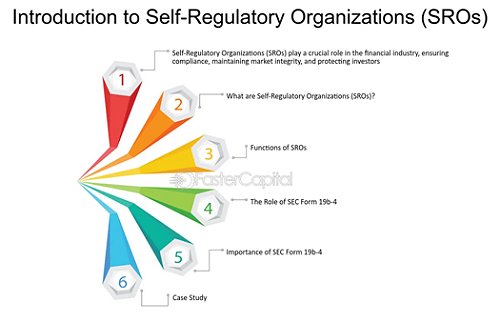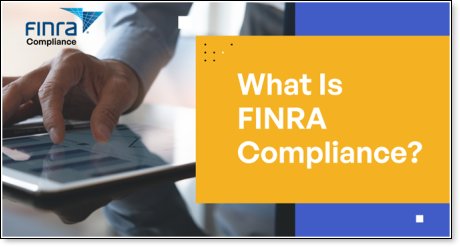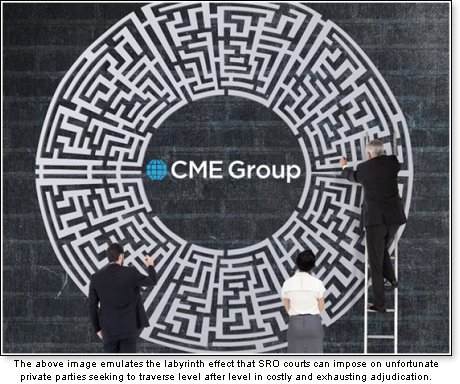
Stone Washington

“Our constitutional structure does not permit unaccountable private actors to wield governmental power. FINRA has only minimal oversight from an independent federal agency. Therefore, it must not issue and enforce rules that have the force and effect of federal law. Additionally, none of FINRA’s board members and hearing officers is appointed by the president or any executive officers, as the Constitution requires when such significant government power is involved.”
~ Excerpt from a Pacific Legal Foundation blog post regarding their pending case, Frank Black and Southeast Investments N.C., Inc. v. FINRA
“Just as we begin to grasp the monumental challenge of ALCs in the federal bureaucracy, a newer form of these courts emerges. Enter self-regulatory organizations (SROs), private-sector quasi-governmental bodies that operate as judge, jury, and regulator.”
~ Stone Allen Washington
In a previous piece for the Competitive Enterprise Institute, I described an unusual phenomenon: a private self-regulatory organization (SRO) that runs its own court system. SROs represent a particular kind of private entity to which regulatory agencies outsource some of its government powers.
This article explores some of the pros and cons of those SRO courts. That is, does their unusual blend of public-private powers outside of the judicial system outweigh whatever benefits they may provide in facilitating good conduct? There has been much cause for concern over the Securities and Exchange Commission’s (SEC) unconstitutional in-house court system. This article advances this concern by exposing how the SEC oversees its own SRO court system, which imposes further administrative burden upon private litigants seeking to have a fair day in court.
Over the past decade, the SEC has faced multiple Article III court challenges to its administrative law court structure. It has lost several of these high-profile cases before the U.S. Supreme Court, including Lucia v. SEC (2018) and Axon v. FTC (which conjoined the SEC v. Cochran case in 2023). The SEC currently faces a major challenge to the constitutionality of its ALC before the Supreme Court in SEC v. Jarkesy (2024—). What the Court ultimately decides in this dispute may have a lasting impact on the legitimacy of the SRO court system. We will now explore some of the perceived benefits and problems these SRO courts offer.
Pro: SRO courts are rare and serve a purpose
Among the 48 different SROs, only three of them possess an in-house tribunal. One of these, the Financial Industry Regulatory Authority (FINRA), is probably the most powerful of them all.
FINRA is a quasi-governmental body. While operationally, FINRA is a private nonprofit corporation, its raison d'être is to enforce securities laws on government-registered financial firms and brokers.
FINRA wields significant power in this role. It executes rules on behalf of the SEC, passes its own policies to assist with monitoring broker-dealer transactions, and adjudicates potential violations of these policies among FINRA-registered market actors.
The Public Company Accounting Oversight Board (PCAOB) also has its own in-house court system to adjudicate challenges involving its enforcement actions and rulemaking. Like FINRA, the PCAOB is a quasi-governmental corporation with massive oversight authority in financial services.
The PCAOB was created by the Sarbanes Oxley Act (2002) for two primary purposes: (1) to monitor audits conducted by public companies, (2) to impose enforcement actions against public accounting firms for perceived compliance violations.

The third SRO court belongs to the Chicago Mercantile Exchange (CME Group), the world’s largest derivatives marketplace. Unlike the SEC, the CME Group operates under the jurisdiction of the Commodity Futures Trading Commission (CFTC), which delegates administrative enforcement and adjudicatory powers to it. The CFTC possesses its own ALC system like the SEC where it can manage its administrative matters in-hose.
The CME Group’s court—dubbed as the “Business Conduct Committee” (BCC)—is far more obscure and informal than FINRA’s and the PCAOB’s. CME Group lacks an actual webpage for the BCC or its hearing panel members (judges), outside of being described in the CME’s rulebook. The BCC serves to uphold the CME’s rules for companies engaging in transactions across its exchange, while ensuring that market actors adhere to the CFTC’s regulatory requirements. This is because the CME operates as a regulated derivative clearing organization (“DCO”) with the CFTC, serving an administrative purpose of overseeing and policing the exchange of derivatives.
Where most SROs are limited to executive and legislative functions, only these three bodies can judge matters in-house. FINRA manages securities cases regarding membership firms and dealers, while the PCAOB oversees cases pertaining to corporate accounting issues. CME Group adjudicates disputes involving their member firms trading futures and options contracts on the market.
While SROs occupying their own court systems are rare, they serve a useful purpose to the SEC by providing a polycentric governance system. This means that the SEC can expand its administrative oversight of corporate conduct (i.e., membership registration, trading activity, accounting practices) by using SRO courts as proxies.
SROs utilize an informational advantage over SEC officials because of their proximity to market participants. This enables them to carry out enforcement actions and render adjudicatory decisions on behalf of the SEC in a more streamlined manner than the agency itself. Last year, FINRA brought 496 disciplinary actions and rendered 85 decisions involving businesses and individuals. This cuts down on the SEC’s annual enforcement obligations, while expanding the agency’s capacity to manage legal matters. The CME appears to serve a similar, but less pronounced, purpose for the CFTC’s adjudications. Yet, without any official page on the BCC’s caseload and judges, it is impossible to ascertain the true scope of their adjudications.

Con: SRO courts stretch delegated powers into prohibited territory
FINRA and PCAOB get their authority from the SEC as an extension of the Commission’s own delegated authority from Congress. While the PCAOB was created by a legislative act of Congress, FINRA was formed from a private-sector merger of national securities exchanges approved exclusively by the SEC. By statute, Congress only permits the SEC to register new SROs, not to approve mergers and delegate adjudicatory powers to new entities. As I explain below, this form of double delegation is highly unusual and problematic.
Both FINRA and PCAOB were given governmental powers as a means of expanding the SEC’s regulatory influence over market actors, while CME’s expands the CFTC’s regulatory reach over DCOs. FINRA enables the SEC to control the actions of market intermediaries like broker-dealers, while PCAOB enables the SEC to more closely direct the practices of public accounting firms.
This extended authority seeps into FINRA, PCAOB, and CME’s in-house court systems. If a private litigant loses before a FINRA or PCAOB appointed judge and seeks to appeal their case, they must first go before the SEC’s in-house court. The SEC retains a built-in adjudicatory advantage against outside litigants since FINRA and PCAOB judges ultimately derive power and legitimacy from SEC actions. Litigants involved in CME cases most likely are forced to appeal their matters directly to the CFTC’s court system as well. This only serves to advantage the agencies at the expense of the private parties, as litigation costs continue to pile up.
SRO courts are evidence that the SEC’s delegated powers extend over the entire realm of financial services. All entities registered with the SEC – SRO exchanges, market intermediaries, and accounting firms – are subject to FINRA and the PCAOB’s courts by extension of the SEC’s jurisdiction. The SEC relies on FINRA and the PCAOB’s close interactions and oversight of market actors as a means of extending its limited adjudicatory reach over them.

Administrative agencies are only supposed to wield executive functions, plus some very limited legislative authority delegated by Congress. While the Administrative Procedure Act permits agencies to possess their own ALCs, it does not allow for a further delegation of judicial power to quasi-governmental organizations under the agency’s supervision. Additionally, the Constitution recognizes that only Congress can pass laws that create Article III courts. This privilege does not extend to passing statues that enable quasi-governmental entities to possess their own court systems. Congress is only permitted to delegate legislative (not judicial) powers in limited situations.
Pro: SRO adjudications are relatively few compared to agencies
SRO courts are not only rare, they adjudicate only a small number of cases. PCAOB hearing officers (judges) only manage around two cases per year, with a total of 27 cases in the organization’s 13-year history. FINRA adjudicates a larger number of cases, with an average of 85 per year. CME’s BCC currently does not report data on its caseload. My calculations suggest that federal agencies typically average 1,048 cases per year (I have excluded some agencies from my analysis that are outliers or have provided insufficient public data.). For SROs, this smaller average is understandable given there are only three entities that harbor court systems. However, compared to the SEC’s annual average of 87 cases per year, FINRA’s rate of adjudication is about the same. So, at the macro-level, SRO court activity appears to be relatively small. But within the securities sector, FINRA’s court reduces the SEC’s caseload burden by half.
Con: SRO courts deny access to justice by serving as an additional barrier to real courts
FINRA’s ALC serves as an added wall for many litigants to scale before they can have their matter brought before the SEC and eventually before a real federal court. This means that securities professionals, public firms, and broker-dealers must all face a FINRA panel of judges in matters involving FINRA’s broad jurisdiction. This jurisdiction extends beyond violations to its own rulemaking to overlap with the SEC’s, as FINRA can launch enforcement actions against its members for violating SEC rules and federal securities laws. Because FINRA appoints its own judges, sets its rules, and enforces them against registered entities, its in-house adjudication stacks the deck against defendants.

Facing a FINRA or PCAOB-appointed judge compared to going directly before an SEC-judge only heightens the degree of unfairness with agency adjudication. The same can be said for the CME’s hearing panel. SRO courts extend an already protracted and costly process of adjudication, which denies equal access to justice for the majority of firms and individuals that lack the resources to appeal their cases to the SEC and ultimately to an Article III court. There are laws, like the Equal Access to Justice Act (1980), that chip away at this unfairness by compensating a private litigant’s legal fees if they win against agencies in-house. However, such compensation is provided only if the litigant (1) endures the extensive agency adjudication process, and (2) beats the government in-house or before an Article III setting. This is much easier said than done.
Con: SRO courts employ enforcement officials with an inbuilt conflict of interest
SRO courts appear to be more conflicted than regular agency courts. One of the biggest issues with agency ALCs is that their court system are merely outgrowths of the agencies that controls them. There is absolutely zero sense of judicial independence. This issue is even worse with FINRA’s court, as most of its lower court hearing officers (judges) are also enforcement officers. This is because FINRA establishes ad-hoc panels of hearing officers drawn from a pool of current and former FINRA officials from various district committees.
Many of these individuals are compliance officers that advise FINRA and its constituents about how industry trends impact existing regulatory programs. When you have FINRA-executive officials who also serve as judges over the very rules/regulations they enforce, this looks like an institutional conflict of interest.
PCAOB tries to avoid this conflict by highlighting a wall of separation between their hearing officers and the Division of Enforcement and Investigations. However, other than the Chief Hearing Officer, it is hard to identify proper distinctions between the officers’ roles; there is no mention of any hearing officers on the PCAOB’s website or within their annual budgets. This lack of transparency regarding who the officers suggests that there is little weight for any claim of impartiality by the PCAOB.
The CME’s BCC resembles FINRA in that its adjudicatory body appears to be an arm of the organization’s enforcement division. The BCC does not even possess a separate page outside of the one designated to “Market Regulation Enforcement.” This suggests that everything CME adjudicates serves the purpose of CME enforcement officers, rather than ensuring their judges render impartial opinions without undue influence from the executive wing.

This is why only CME can bring a case before the BCC, rather than affording proper due process for a private litigant to present a case. According to their website, “enforcement has the authority to present cases to the Chief Regulatory Officer for the issuance of charges and prosecute alleged Exchange Rule violations before the Business Conduct Committee.” There appears to be no reciprocal right for private litigants to bring charges of their own against the CME, which represents lop-sided justice to say the least.
Conclusion
Congress or the Courts should consider whether SRO court systems are truly necessary, given that their existence seems to violate the Constitution’s separation of powers doctrine. Congress should consider the policy ramifications of SROs possessing governmental powers that they did not authorize. Courts should examine whether SRO courts are extraconstitutional when conflicts arise among private litigants. While these courts are relatively few and do appear to serve a legitimate purpose for the SEC and CFTC by resolving financial service issues, they appear to voyage into prohibited territory by undermining Constitutional protections.
SRO courts also impose an onerous adjudicatory barrier for certain litigants who must face 2-3 panels of judges and board officials before bringing their cases before the SEC and CFTC’s court systems. This only exacerbates the severe cost and time burden for litigants. It is also alarming that most of FINRA’s judges are also executive officials, which presents a major unfairness problem that plagues many agency ALCs as well. On net, SRO courts may impose more of a threat than a benefit. As Congress considers drafting legislation on administrative law court reform, they would be wise to recognize the threat imposed by the hidden SRO court system.
This adjudicatory problem makes SROs like FINRA, CME, and PCAOB a poison pill constitutionally speaking. Furthermore, these lawless entities will only add layers and layers of bureaucracy to an already bloated Leviathan federal government without ensuring any redeemable qualities to the system like – Justice for We the People, streamlining the bureaucracy or the process, regulatory efficiently, etc. This Leviathan Big Government paradox reminds me of a 2014 essay that my father wrote, touching upon the Separation of Powers quandary titled—Do You Know your Constitution?, Part 2.
RenewAmerica.com essay excerpt
1. What is bureaucratic despotism?
DR. ARNN: "One of the chief sponsors of the Dodd Frank Finance Reform bill called that legislation, ‘about as important as it gets, because it deals with every single aspect of our lives.’ And how does this legislation deal with every aspect of our lives? In the most unconstitutional way: It sets up a board called the Consumer Financial Protection Bureau, which has the power to regulate our economic transactions independently of both the president and Congress – in other words, permanent government employees are placed in charge of us beyond the control of those we elect, the control of "we the people." This is a violation of the representative form of government, without which there can be no Constitutional government."
© Stone WashingtonThe views expressed by RenewAmerica columnists are their own and do not necessarily reflect the position of RenewAmerica or its affiliates.

















